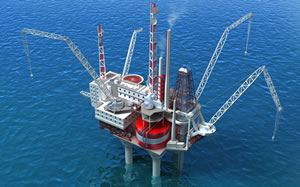
Shipping & the Shipping Industry
Shipping, the carriage of goods by sea, has not only contributed very immensely to the fiscal well- being of some nations of the world over the centuries; it has also provided a huge economic prosperity for some individuals and corporate bodies the world over.
While shipping is still deemed the cheapest way of transporting large quantities of goods over long distances, it has constituted a strong link by which commercial relationships have been established amongst several nations of the world.
As opposed to “ship loading” services by which goods in bulk are moved for one or few shippers, in “liner services” relatively small shipments of general cargo are made on regular schedule for many shippers.
Shipping and the oil industry in Africa:
 It is common knowledge that most of the countries in Africa are either littoral states or islands hence; it is assumed that the continent should be aware of the effect of maritime wealth on its domain. With the Suez Canal and the red sea separating Africa from the Middle East, Africa is well and favorably positioned to benefit from maritime transport and world trade.
It is common knowledge that most of the countries in Africa are either littoral states or islands hence; it is assumed that the continent should be aware of the effect of maritime wealth on its domain. With the Suez Canal and the red sea separating Africa from the Middle East, Africa is well and favorably positioned to benefit from maritime transport and world trade.
In view of the foregoing, over 90% of Africa’s imports go through ports before being forwarded to their final destination via air, road and rail networks. So, shipping business plays a vital role in trade and economic development in the continent.
The African continent is home to four of the top 20 oil-producing countries in the world-the four countries are Nigeria, Algeria, Angola and Libya in preferential order. While the upstream oil industry in Africa is a key component in any strategic assessment of the continent with reserves estimated at 117 billion barrels, or 9.5 per cent of the world’s reserves, and production of 12.6 per cent of the world’s output,
the downstream industry comprises several refineries in well over 20 countries with a capacity equal to 4 per cent of the world’s total.
For example, Nigeria being the largest oil producing country in Africa, as at 2014 was producing more than 2.4 million barrels of oil per day. The country has produced between 2.1 million and about 2.6 million barrels per day for the last 21 years with fluctuations in annual oil production, especially since 2005, attributable to security problems.
Under the Nigerian Constitution, all minerals, oil and gas in Nigeria belong to the Federal Government and the Nigerian National Petroleum Corporation (NNPC) is responsible for regulating Nigeria’s oil and gas sector, and for developing its oil and gas assets. The NNPC relies very heavily on international oil companies to fund development and provide expertise. Most large onshore oil production operations in the country are organized as joint ventures between the NNPC and private oil firms, with the NNPC as majority owner. Comparatively, costly and intricate offshore oil developments are typically organized under production-sharing contracts, the terms of which can be adjusted to provide appropriate incentives to international operators.
Furthermore, because the deepwater sector still has a large avenue to expand and develop, the oil companies are having a field day in Nigeria. Deepwater drilling for oil is especially attractive to the oil companies because the Nigerian government has very little share in these activities and it is more difficult for the government to regulate the offshore activities of the companies.
Some of the oil companies operating in Nigeria are Chevron, Shell, Exxon Mobil Corporation, Sinopec etc.
We are always on ground at I.T.A Nig Ltd to help generate and facilitate onshore and offshore contracts, ship registration, compliance with the Cabotage regime and other legislations, conformity with NIMASA (Nigerian Maritime Administration and Safety Agency)’s requirements and the Oil and Gas regulations.
